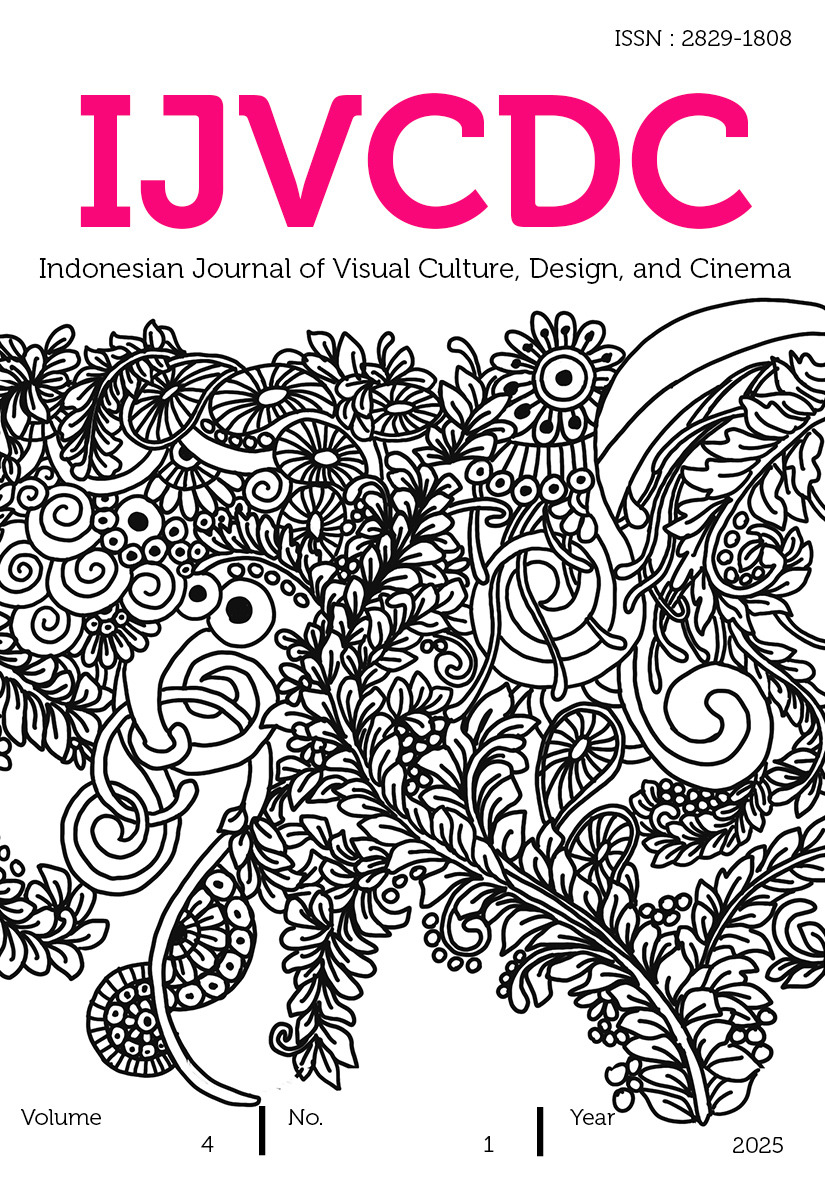The Involvement of Artificial Intelligence in Addressing Elderly Social Interaction
DOI:
https://doi.org/10.21512/ijvcdc.v4i1.13297Keywords:
Elderly loneliness, social isolation, assistive technology, artificial intelligence, social interactionAbstract
Social isolation and loneliness among the elderly have become significant global issues, negatively impacting their mental and physical health. With the advancement of technology and the emergence of artificial intelligence (AI) systems, various potential solutions can be utilized to address these challenges. This study explores the possible involvement of AI in enhancing elderly social interactions, focusing on technologies that help them stay connected with family, friends, and their social environment. This research employs a qualitative approach, including a literature analysis of AI applications that can support elderly social interaction. The findings reveal that AI systems such as social robots, virtual assistants, and chatbot applications hold great potential in reducing loneliness and increasing social connectivity among the elderly. These technologies not only facilitate more frequent social interactions but also provide emotional and cognitive support, ultimately improving their quality of life. Although AI systems offer numerous benefits, challenges such as dependence on technology, initial resistance from the elderly, and limitations in non-verbal communication remain obstacles that need to be addressed. This study concludes that AI involvement in supporting elderly social interactions has great potential. However, its implementation must consider accessibility, comfort, and proper training to ensure its effectiveness in reducing social isolation.
References
Akbar, F., Darmiati, Farmin, A., & Putri, A. A. Z. (2021). Pelatihan dan pendampingan kader posyandu lansia di Kecamatan Wonomulyo. Jurnal Abdidas, 2(2), 392-397. Diakses dari http://abdidas.org/index.php/abdidas.
Broadbent, E., Stafford, R., & MacDonald, B. (2018). Acceptance of healthcare robots for the older population: Review and future directions. International Journal of Social Robotics, 10(5), 635-643. https://doi.org/10.1007/s12369-018-0476-x
Cattan, M., White, M., Bond, J., & Learmouth, A. (2005). Preventing social isolation and loneliness among older people: A systematic review of health promotion interventions. Ageing and Society, 25(1), 41-67. https://doi.org/10.1017/S0144686X04002594
Chou, Y.-H., Lin, C., Lee, S.-H., Chang Chien, Y.-W., & Cheng, L.-C. (2023). Aplikasi Kesehatan Seluler yang Berpotensi untuk Meningkatkan Kesehatan Mental Lansia: Tinjauan Sistematis. Clinical Interventions in Aging, Volume 18 (September), 1523–1534. https://doi.org/10.2147/cia.s410396
Garcia-Mendez, S., Arriba-Perez, F., Francisco, J., Gonzales-Castano., Regueiro-Janeiro, J A., & Gil-Castineira, Felipe. (2021). Entertainment Chatbot for the Digital Inclusion of Elderly People Without Abstraction Capabilities. IEEE Access. Diakses dari https://ieeexplore.ieee.org/stamp/stamp.jsp?arnumber=9432816
Ghafurian, M., Chandra, S., Hutchinson, R., Lim, A., Baliyan, I., Rhim, J., Gupta, G., Aroyo, A. M., Rasouli, S., & Dautenhahn, K. (2024). Systematic review of social robots for health and wellbeing: A personal healthcare journey lens. ACM Transactions on Human-Robot Interaction, 14(1), 1–48. https://doi.org/10.1145/3700446
Liu, M., Wang, C., & Hu, J. (2023). Older adults’ intention to use voice assistants: Usability and emotional needs. Heliyon, 9 (11), e21932, https://doi.org/10.1016/j.heliyon.2023.e21932.
Muhiddin, S. (2023). Sinergi manusia-robot: Penggunaan robot bantu-sosial sebagai intervensi psikologi. ResearchGate. https://doi.org/10.13140/RG.2.2.14640.53760
Noor, Rizkia Amartya, Harliansya, & Widayanti, Etty. (2023), Hubungan Kualitas Hidup Terhadap Harga Diri Lansia Selama Pandemi Covid-19. Cerdika: Jurnal Ilmiah Indonesia. 3 (1), Januari. Hal. 12-19. Diakses dari https://cerdika.publikasiindonesia.id/index.php/cerdika/article/download/515/747/4829.
Salwa, N D K. (2024). Mengulas Pemantauan Lansia Jarak Jauh Berbasis IoT. Cloud Computing Indonesia. Diakses dari https://www.cloudcomputing.id/pengetahuan-dasar/pemantauan-lansia-iot.
Setiarsih, D., & Syariyanti, I. (2020). Hubungan Harga Diri Dan Interaksi Sosial Dengan Fungsi Kognitif Pada Lansia. Indonesian Journal of Professional Nursing (IJPN), 1(1), 10–17. https://doi.org/10.30587/ijpn.v1i1.2015
Sudarsono, R A & Muda, N R S. (2025). Disain Robot Humanoid sebagai Pendamping Lansia Dipole_31: Solusi Teknologi untuk Perawatan Sehari-Hari. Jurnal Nasional Teknologi dan Inovasi. 1 (1), Januari. DOI: http://dx.doi.org/10.13140/RG.2.2.33092.54406
Wijayanti, dkk. (2024). Menjaga Ingatan Lansia. Seminar Nasional Psikologi 2024. Universitas Ahmad Dahlan. Diakses dari https://eprints.uad.ac.id/71688/1/1.%20Fungsi%20Kognitif_Seminar%20NasionaL%20Psikologi_Genap%202023-2024.pdf
Wikipedia contributors. (2025). When Life Gives You Tangerine. Wikipedia, The Free Encyclopedia. Diakses dari https://en.wikipedia.org/wiki/When_Life_Gives_You_Tangerines
Yuzefo, M. A. (2015). Hubungan Status Spiritual Dengan Kualitas Hidup Pada Lansia. Riau University.
Downloads
Published
How to Cite
Issue
Section
License
Copyright (c) 2025 Noachbriantte Zwezda Sutomo, Mita Purbasari Wahidyat

This work is licensed under a Creative Commons Attribution-NonCommercial-ShareAlike 4.0 International License.
Authors who publish with this journal agree to the following terms:
a. Authors retain copyright and grant the journal right of first publication with the work simultaneously licensed under a Creative Commons Attribution License - Share Alike that allows others to share the work with an acknowledgment of the work's authorship and initial publication in this journal.
b. Authors are able to enter into separate, additional contractual arrangements for the non-exclusive distribution of the journal's published version of the work (e.g., post it to an institutional repository or publish it in a book), with an acknowledgment of its initial publication in this journal.
c. Authors are permitted and encouraged to post their work online (e.g., in institutional repositories or on their website) prior to and during the submission process, as it can lead to productive exchanges, as well as earlier and greater citation of published work.
USER RIGHTS
All articles published Open Access will be immediately and permanently free for everyone to read and download. We are continuously working with our author communities to select the best choice of license options, currently being defined for this journal as follows: Creative Commons Attribution-Share Alike (CC BY-SA)







 This work is licensed under a
This work is licensed under a 